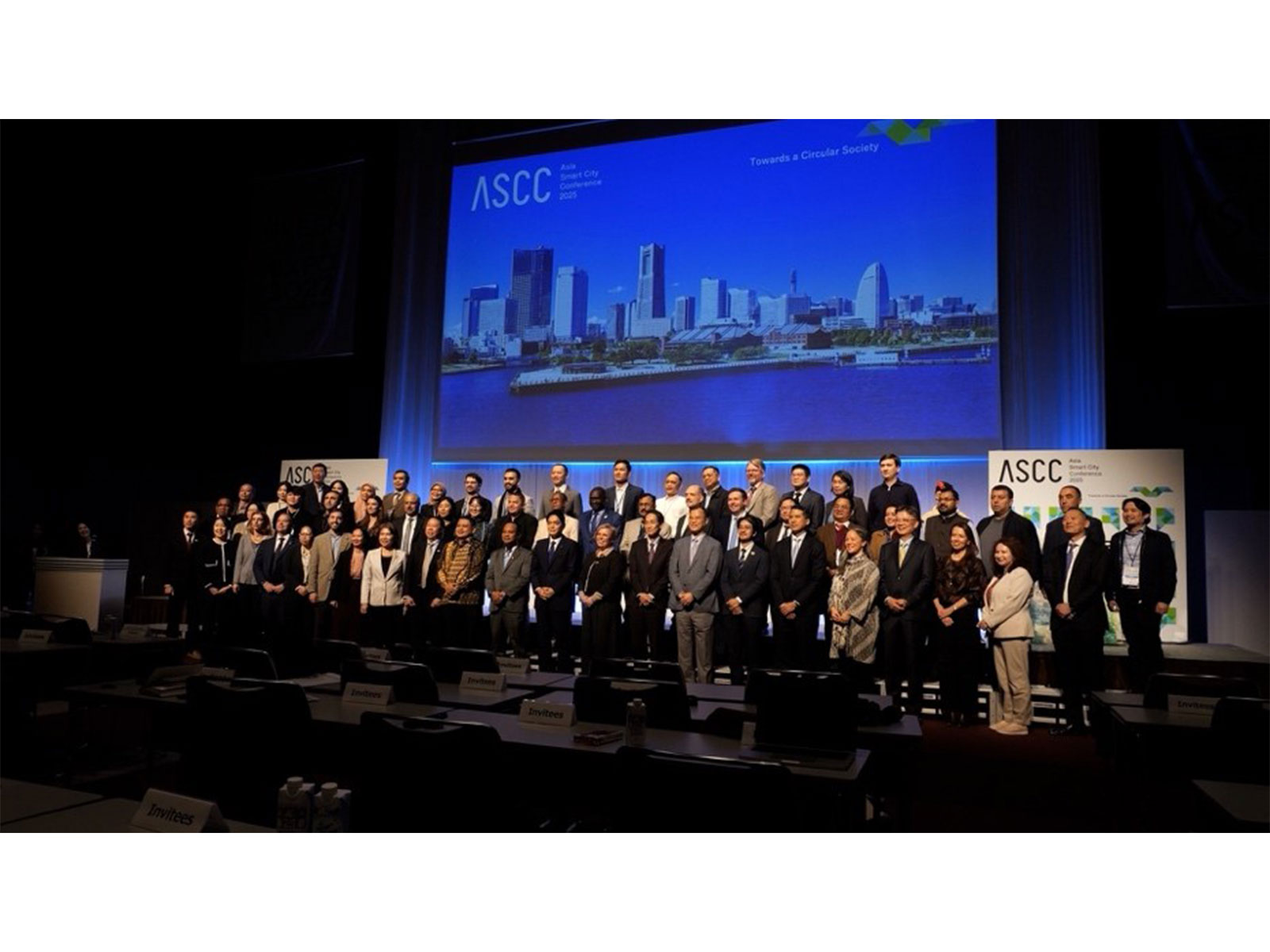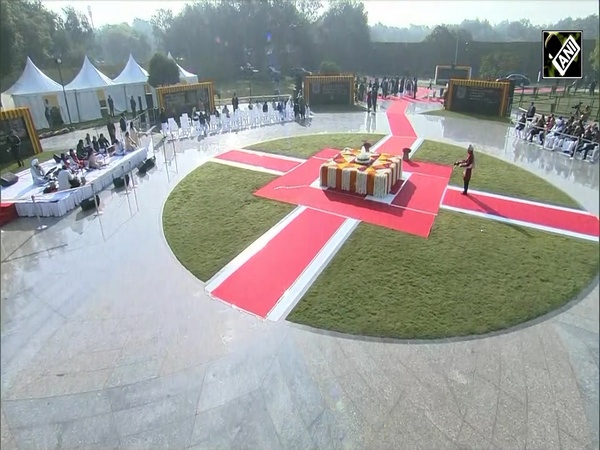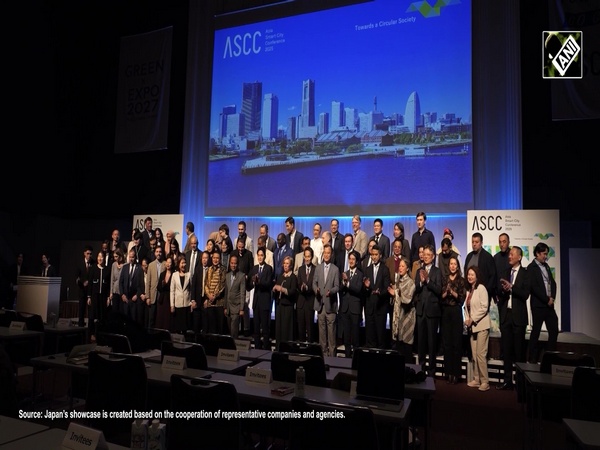Turkey condemns French-Greek arms deal as 'a threat to regional peace'
Oct 04, 2021

By John Solomou
Nicosia [Cyprus] October 4 : A French-Greek deal signed in Paris last Tuesday by which Greece will buy three state-of-the-art frigates and provides for France's immediate military assistance to Greece and vice versa, in the event of a third country attacking, even if that country is part of their alliances (such as fellow NATO member turkey) was condemned by the Turkish Government as "a threat to regional peace and stability".
Under the multi-billion-euro military agreement between Athens and Paris, Greece will buy three advanced French-built Belharra frigates, which are much more advanced and powerful than any other ship in the Greek navy. Greece will receive these frigates by 2025 and has the option of buying a fourth one. The Belhara frigates are equipped with full air defense equipment and anti-submarine warfare and capabilities to shoot down air targets at very long distances. They are expected to act as power multiplier in the Aegean and the Eastern Mediterranean.
On Friday, Turkish Foreign Ministry spokesperson Tanju Bilgiccondemned what he called "Greece's maximalist claims" and added that the multi-billion-euro arms deal signed between France and Greece"is a threat to regional peace and stability. Greece's maximalist claims for jurisdiction over maritime areas and airspace are incompatible with international law," Bilgic said, without clarifying which rule of the International law Greece was violating.
"It is futile for Greece to dream that it can make us accept these claims- by forging bilateral military alliances against Turkey- in a manner that harms the NATO alliance. Such futile efforts will only increase our determination to protect our rights as much as the rights of the 'Turkish Republic of Northern Cyprus' in the Aegean and the Mediterranean."
Greece has often been at loggerheads with Turkey over a range of issues, from competing claims over hydrocarbon resources in the Aegean to the demilitarization of islands. Turkey declared that will keep up energy exploration in the contested eastern Mediterranean waters, where last August a pair of Greek and Turkish frigates collided during a volatile naval standoff, bringing the two NATO members near to a military clash.
Greek Prime Minister Kyriakos Mitsotakis, who met with French President Emmanuel Macron before the signing of the deal, said that the agreement reached involved mutual support and joint action at all levels, and developed a very powerful alliance between Greece and France that goes beyond their mutual obligations as NATO allies.
Macron stressed that the frigate sale was not meant to be seen as a threat against Ankara, but a means to jointly ensure security in the Mediterranean, as well as in North Africa, the Middle East and the Balkans.
The previous day, Mitsotakis had said that Greece wanted to avoid an arms race with Turkey and defuse tensions with Ankara in the eastern Mediterranean.
Recently, Turkish Defense Minister Hulusi Akar accused the Greek Government of engaging in an arms race. "They buy jets, arms, equipment. It is not possible to change the power balance with a few secondhand jets," Akar had said referring to a $3 billion deal reached last January between Greece and France to buy 18 Rafale warplanes, 12 of them used.
Greece and Turkey have been historical geopolitical rivals for more than a century and are locked in an intense naval arms race. In recent years Turkey has been assertively promoting the doctrine of "Mavi Vatan" (Bluewater Homeland) claiming a sea area of 135,000 square miles between Crete and Cyprus, adding one more dispute in their long list of differences.
Emmanuel Karagiannisof the Department of Defence Studies, King's College, London, points out: "Greece and Turkey have bitterly disagreed over a number of issues. The list includes the limits of Greece's territorial waters and EEZ, the extent of Greece's airspace, the Turkish occupation of Northern Cyprus, and various issues involving religious minorities. To make matters worse, the 2019 Turkish-Libyan maritime agreement established EEZs that ignored Greek sovereign rights in the area. In response, Athens and Cairo signed their own maritime boundary delimitation agreement to undermine the validity of the Turkish-Libyan deal."
It should be noted that while Turkey accuses Greece of increasing its naval strength at the expense of military balance in the region, Ankara is doing the same thing, as quite recently the Turkish Navy acquired the first of six new German-built Type 214 submarines, trying to shift the naval balance in its favour.
Ankara's argument that the Greek-French arms deal is harmful for the NATO alliance has a hollow ring. Turkish President Recep Tayyip Erdogan does not take NATO considerations into account in his various moves, particularly in Ankara's relations with Russia.
Turkey has acquired the Russian S-400 air-defense system, despite US and NATO objections that the Russian system is a threat to F-35 fighter jets. As a result, the US slapped sanctions on Ankara and expelled it from the program to produce the next generation F-35.
Last week Tayyip Erdogan had a meeting with Russian President Vladimir Putin at the Black Sea resort of Sochi and discussed deepening defence industry cooperation between the two countries. During the meeting Erdogan reaffirmed Turkey's commitment to the S-400, vowing Ankara "would not take a step back" from the purchase.
On 26 September, in an interview with CBS News, Erdogan showed how much he takes NATO's interests into consideration, when he said his country is considering buying a second batch of S-400, despite strong US objections.
The Turkish government accuses Greece of "harming the NATO", while Erdogan completely ignores NATO's stated wishes.
As Cengiz Candar, a well-respected Turkish journalist says, says: "Under Erdogan, Turkey is steadily sailing toward a non-Western trajectory in a multipolar world where China is emerging in its East. Erdogan's cautious tone in regard to the Uyghur issue during his UN speech also reflected his efforts not to attract any outrage from Beijing. When it came to targeting the United States and the Western world, meanwhile, Erdogan didn't mince his words."



















